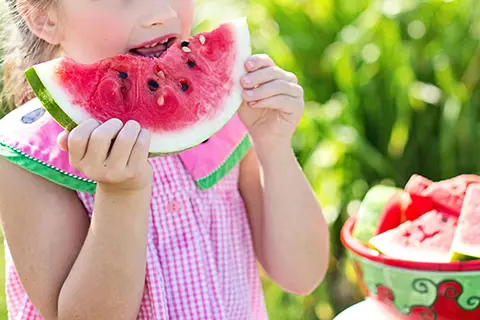
Nutrition for healthy term infants (NHTI): 0–6 months 6–24 months Nutrition Guidelines (ODPH) NutriSTEP® Dietitians of Canada UnlockFood Nutrition Guidelines (AHS)
Breastfeeding: Support exclusive breastfeeding for the first six months of life for healthy term infants. Breast milk is the optimal food for infants, and breastfeeding (with complementary foods) may continue for up to two years and beyond unless contraindicated. Breastfeeding is associated with better health outcomes (e.g. fewer gastrointestinal and respiratory illness, lower incidence of SIDS). Maternal support (both antepartum and postpartum) increases breastfeeding and prolongs its duration. Early and frequent parent-infant skin-to-skin contact, rooming in, and banning handouts of free infant formula increase breastfeeding rates.
Breastfeeding Matters (Best Start) Skin-to-skin care (CPS)
Vitamin D supplementation of 400 IU/day (800 IU/day in high-risk infants) is recommended for infants/children for as long as they are breastfed. Breastfeeding mothers should consume a daily supplement that contains at least 400-600 IU vitamin D.
Nutrition for Healthy Term Infants (HC)
Vit D deficiency (Caring for Kids New to Canada)
Homemade Infant Formula (AHS)
Milk consumption in excess of 750ml per day poses a risk for iron deficiency.
Soy-based formula is not recommended for use in cow milk protein allergy or in preterm infants, and may interfere with absorption of T4 replacement therapy in infants with congenital hypothyroidism. Soy-based formulas (AAP)
Plant-based beverages are not a nutrition-equivalent replacement for milk, especially for infants/children < 2 yrs due to low protein, energy and nutrient content. If a parent chooses not to provide breastmilk or cow’s milk at 9-12 mos, a soy-based formula is recommended until age 2 yrs. Plant-based beverages (AHS): For Providers For Families Nutritional Content (DC Unlockfood)
Avoid all sweetened fruit drinks, sport-drinks, energy drinks and soft-drinks; restrict fruit juice consumption to a maximum of 1/2 cup (125 mL) per day. Limit the consumption of prepared food and beverage products that are high in sugar content. Energy and sports drinks (PCH) Juice (DC Unlockfood)
Uncomplicated GE reflux is frequent, improves with conservative measures, and usually resolves by 1 yr. Avoid medication unless poor growth, respiratory problems or GI bleeding GE Reflux (CPS)
Introduction to solids: A few weeks before to just after 6 months, guided by infant’s readiness (CPS Caring for Kids), start iron containing foods to avoid iron deficiency. A variety of soft texture foods, ranging from purees to finger foods, can be introduced. Practical tips: Baby-led weaning (PCH)
Allergenic foods: For all infants, including those at high risk for allergies, allergenic foods (especially eggs and age-appropriate forms of peanut products (NIH)) can be introduced with other solids around 6 months, but not before 4 months, as guided by the infant’s signs of readiness. Once allergenic solids are introduced, they should be fed at least once a week or a few times a month to maintain tolerance. Timing of introduction (CPS) Allergy check Food Allergy Canada Non-IgE mediated food allergy (CPS)
Avoid honey until 1 year of age to prevent botulism.
Promote family meals with independent/self-feeding while offering a variety of healthy foods. NHTI: 6–24 months Canada’s Food Guide
Choose foods with healthy fats (CFG) and limit foods containing saturated fat.
Limit/avoid consuming highly processed foods (CFG) and foods that are high in dietary sodium. Dietary sodium (CPS)
Vegetarian/Vegan diets: Children < 2 yrs fed a vegan diet may be at risk for nutrient deficiencies.
HealthLinkBC Series – Feeding Babies & Toddlers: Vegetarian Vegan
Fish consumption: 2 servings/week of low mercury fish:
Fish consumption and mercury (HC)
